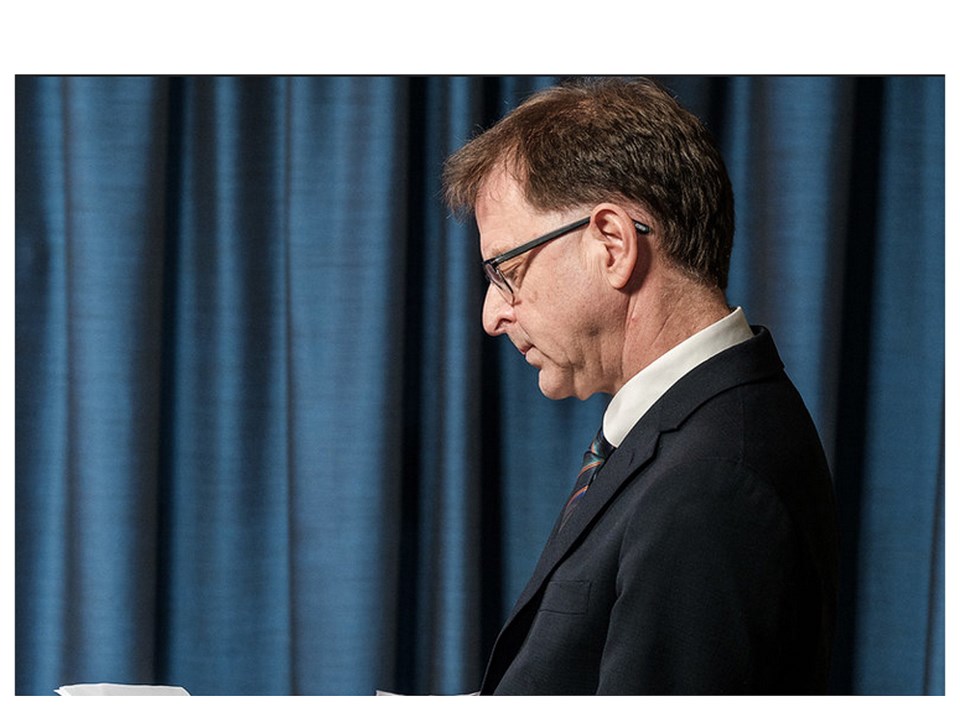Many B.C. politicians are preparing this time of year to head out on summer holidays. Then, there is Adrian Dix.
The province’s minister of health is in the middle of a cross-British Columbia hospital tour, to see first-hand the situation in provincial healthcare centres amidst the ongoing staffing shortage and overall system crisis. So far, he’s visited Dawson Creek, Fort St. John, Surrey, Abbotsford and Nanaimo.
Most recently, Dix was in Williams Lake, announcing last week a $366-million replacement to the 1960s-era Cariboo Memorial Hospital.
“This summer it’s a focus of mine to get out to places and meet directly with providers who are doing some of the most exceptional work I can imagine, and listen to sometimes their calls for change, and for help, and talk to them about what we can do to make things better,” Dix said in an interview.
Usually, the trip coincides with some type of announcement of a new facility or service. After the ribbons are cut and the press conferences over, Dix convenes a series of private meetings with doctors, nurses, health science professionals and local health authority executives to hear directly about the situation in the region.
It’s perhaps no surprise, in most cases, he gets a full-on blast of frustration.
“People are speaking very frankly about their lived experience,” he said. “And I ask them to speak very frankly.”
In Williams Lake, for example, a family doctor crisis has been brewing for months — with some local physicians retiring or leaving in a region where almost 50 per cent of the population is unattached to a doctor.
That has rippled through Cariboo Memorial, where local doctors are supposed to tend to their patients in hospital if they are admitted. The hospital was at risk earlier this year of rejecting people for admission if they didn’t have a family doctor, diverting them hours away to other hospitals. Interior Health has been using outside doctors, while trying desperately to recruit more.
“It’s a significant challenge there,” said Dix. “We’re building a new hospital, and it’s good for recruitment and morale, but it doesn’t deal with what they are addressing this summer.”
The minister does not go incognito into hospitals on his tours, nor does he meander the corridors talking to patients. He said there’s value in having senior health authority officials and staff in a room together, while he prods for solutions.
The challenge of health worker shortages, aging facilities and overcrowded hospitals can seem overwhelming. Dix said he’s asking everyone to suggest short-, medium- and long-term improvements for local staffing and facilities.
“In every place I’ve gone, people have had positive solutions to offer,” he said.
The system, though, is under incredible daily strain.
There were 9,720 people in acute care beds in B.C. hospitals last Thursday — 400 more than expected normally at this time of year, and above base bed level capacity. That causes a shortage of beds, puts beds in hallways, delays admitting patients, creates longer waits in emergency rooms, requires more nurses and doctors, and so on.
The demand never seems to end. It’s a comment Dix hears from the front-line staff.
“We have a healthcare system working at 110 per cent, and the challenge in acute care for the doctors and nurses is there used to be periods where there was less (patients), then more — now it’s just all the time,” he said.
“In many hospitals, that’s just what you are seeing.”
Dix said some of what he’s hearing locally is new, other problems seem universal. But the goal, he said, is to give local front-line health workers time to suggest improvements during a time of crisis.
“Part of it is just hearing,” said Dix. “I want to make sure people understand we’re hearing them.”
Rob Shaw has spent more than 15 years covering B.C. politics, now reporting for CHEK News and writing for Glacier Media. He is the co-author of the national bestselling book A Matter of Confidence, host of the weekly podcast Political Capital, and a regular guest on CBC Radio. [email protected]



